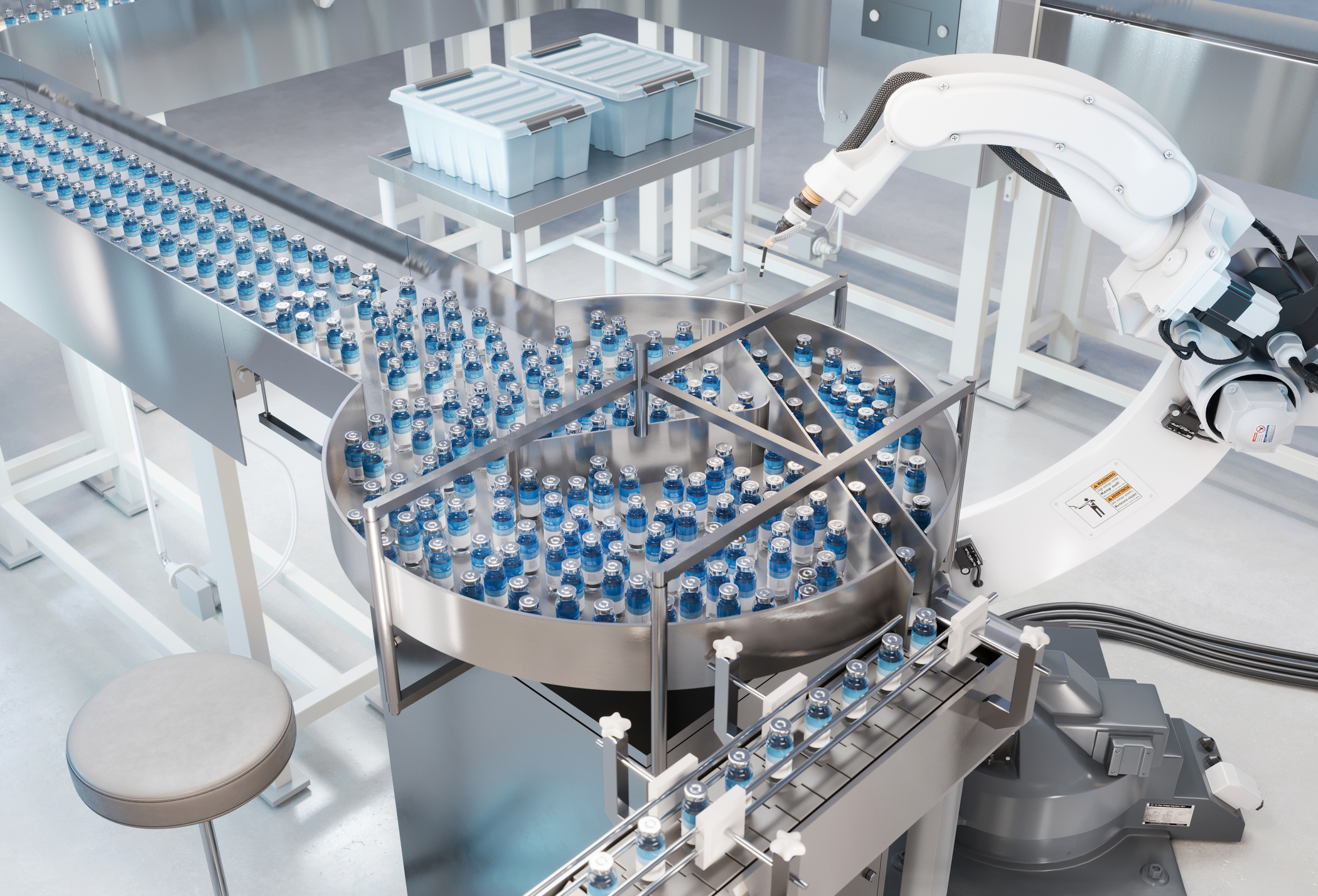
Regeneron's Immersive Drug Development Elective Equips Future Physicians with Unique Industry Insights
Medical Students Learn All Aspects of Drug Development from a Leading Biotech Company

Medical students gain unique insights into the drug development process through an elective focused on this critical aspect of medicine, made possible by a collaboration with Regeneron Pharmaceuticals, a top biotechnology company based in Tarrytown, New York.
Since the drug development area of concentration was introduced last year, students have had the unique opportunity to immerse themselves in every stage of the drug development pipeline—from pre-clinical research to clinical trials, and even the approval and marketing processes. The program offers a comprehensive experience through a combination of lectures, hands-on projects, talks from experts across various departments, and mentorship. Being at Regeneron’s headquarters allows students to experience the drug development process up close, providing an invaluable perspective that extends beyond traditional medical training.
Throughout the program, students dive deeper into drug development and focus on their specific areas of interest. In their fourth year, the program culminates with a three-month immersion at Regeneron, where students work closely with a mentor and undertake a longitudinal research project. The final capstone involves constructing a full drug development plan for a molecule of their choice from early trials to clinical use.
“Pharmaceuticals is an area that may not be clear for many physicians, and it's a side of medicine that isn't often seen,” said Kyla Holbrook, SOM Class of 2027. “I saw this partnership with Regeneron as a great opportunity to learn more about drug development and the pharmaceutical industry, especially since it has a significant impact on patient care. I could be a better physician for my patients by having a clearer understanding of what goes into development of the medications I prescribe.”
The program begins with two weeks of foundational classes, where students delve into the development of antibodies and other proteins, explore genome sequencing at the Regeneron Genetics Center, and gain insights into the regulatory and legal aspects of drug development. This is followed by two weeks of onsite shadowing a mentor at Regeneron, where students participate in team meetings and experience firsthand the collaborative environment of drug development.
Holbrook spent her summer working with the cardiovascular team. Before the company initiates a phase one study on a potential molecule for treating hypotension, Holbrook conducted research on its implications and presented her findings at an internal medicine team meeting. “I’m happy to have possibly contributed in some small way to the research team,” said Holbrook. “This was one of the many highlights I had from the program.”
With a background in cancer drug development, Issac Flores, SOM Class of 2027, says the program "exceeded" his expectations and admired the diversity of Regeneron’s portfolio. During the program, Flores conducted research on weight loss drugs, which he plans to continue as his final research project. After this experience, he envisions himself working in the drug development industry in some capacity after graduation.
“I really liked that the program focused on how doctors operate within the drug development landscape,” said Flores. “As physicians, we typically picture ourselves in hospitals or clinics, so this was a unique opportunity to see how a medical degree can be applied in different ways. We had the chance to shadow clinicians with medical degrees and observe how they use their expertise in unique roles. This experience can open our eyes to the different paths available after graduation.”
A similar sentiment was expressed by Frances Kronenberg, SOM Class of 2027. With a keen interest in psychiatry and neuroscience, she has worked with transcranial magnetic stimulation and is now focused on exploring targeted pharmacological treatments. “I hope to incorporate research into my future career, particularly in the overlap between psychiatry and neuroscience,” said Kronenberg. “I believe targeted treatments are the future of psychiatry, and pharmacology is a highly effective avenue to pursue this.”
Jessica Gai, SOM Class of 2027, had the opportunity to attend key meetings discussing drug candidates within the inflammation and immunology department, where critical clinical development decisions were made. "There wouldn’t be any opportunity to experience this anywhere else," she remarked. Gai was challenged to explore potential indications for assets in one of their drug programs. "It was exciting to assess how a drug candidate might interrupt a certain pathological process, especially if it could be one of the first of its kind," she added.
The program’s emphasis on integrating drug development with medical training underscores its broader objectives for enhancing the field.
“The vision is to address the challenges we have in finding medical directors and clinical trial investigators who are familiar with the drug discovery and development process,” said Yamini Patel, Ph.D., vice president of internal medicine, who serves as a Regeneron program lead and adjunct professor of ophthalmology. “If some of the students go into drug development and work at Regeneron in one of the many roles in industry utilizing their medical degree or maybe they become involved in a clinical trial as an investigator in the future, that’s great. Even if they don’t, maybe they become a practicing physician. As a prescriber, it will be helpful to understand the drug discovery and development process. If so, they’ll benefit from the foundational information we’re providing. As we see it, regardless of the outcome, we’re adding value to the healthcare system at large.”

